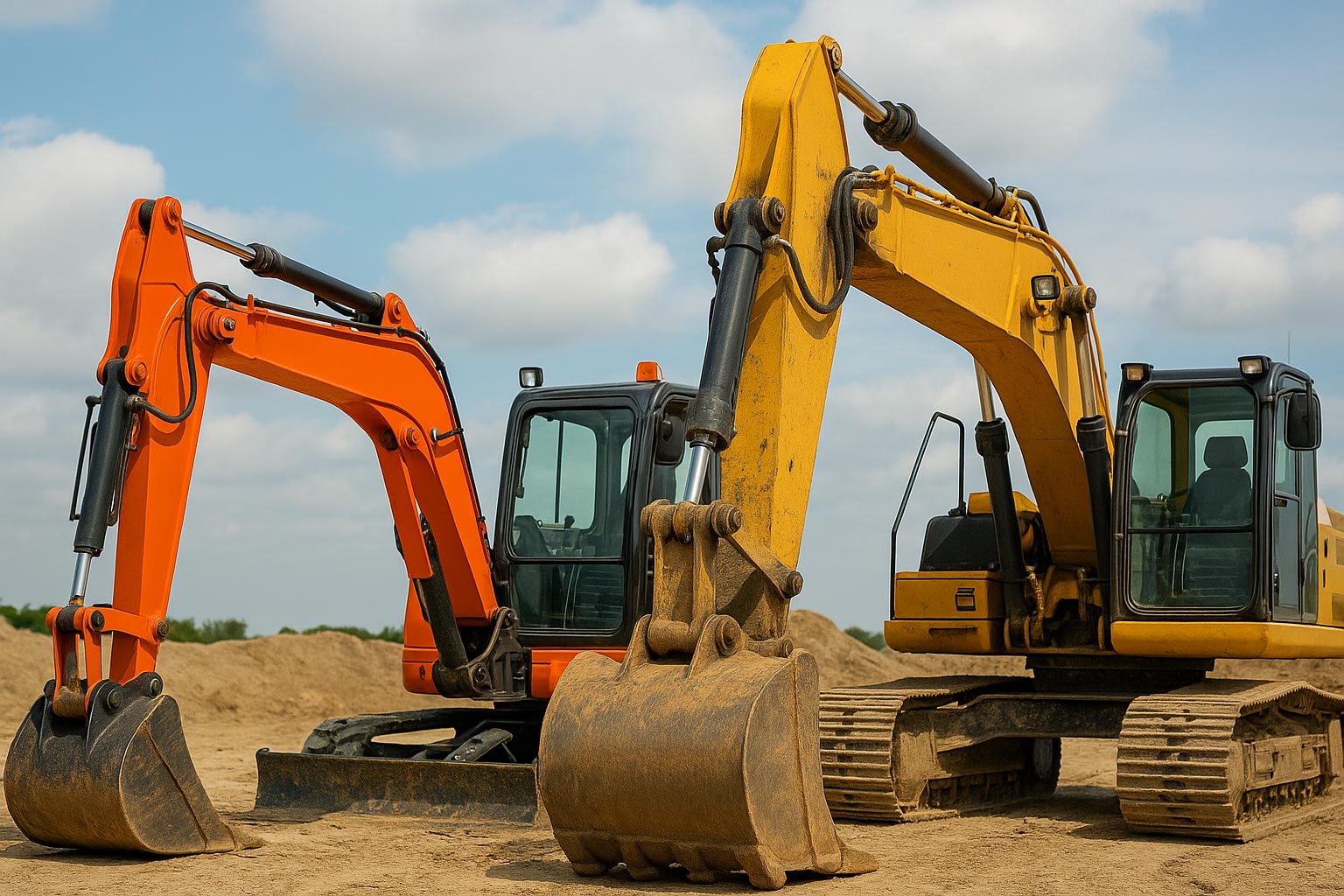Choosing the right excavator isn’t always a straightforward decision. If your project is at a crossroads between a mini excavator and a standard model, understanding the real differences can save your business time, money, and future frustration.
1. Space Constraints & Job Site Size
If your work involves tight alleys, urban backyards, or interior demolition, a mini excavator (typically under 6 tons) is likely your best bet. Its compact size allows for easier transport and maneuverability in constrained areas.
On the other hand, standard heavy equipment models provide more digging power and are ideal for open space job sites like roadwork or land clearing.
2. Operating Costs
Fuel usage, maintenance intervals, and transportation costs all factor into your machine’s operating expenses. Mini excavators usually require less fuel and lower maintenance, making them an efficient option for light to medium-duty work.
3. Versatility & Attachments
Don’t be fooled by size — mini excavators support a wide range of attachments: augers, hammers, grading buckets, and more. However, standard excavators can handle heavier-duty attachments and often offer a wider variety of hydraulic options.
4. Resale & Longevity
If your fleet turns over frequently, consider the resale value. Well-maintained used excavators — especially from trusted brands — hold their value surprisingly well. Standard machines, due to their broader usage, often have higher demand in resale markets.
Which One Is Right for You?
There's no one-size-fits-all. It depends on your workload, job site conditions, and long-term plans. If flexibility, mobility, and lower costs are your priorities, a mini excavator might be the ideal solution. For power, performance, and scale, a standard excavator still leads the way.
Still unsure which excavator fits your needs?
Our expert team is here to guide you — no pressure, just honest advice.









